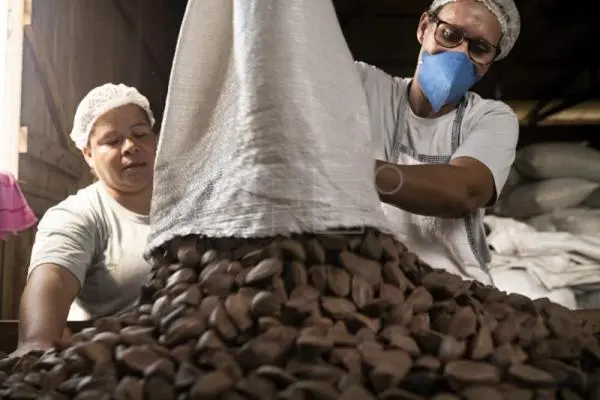This story excerpt was translated from Spanish. To watch the video and read the original story in full, visit Agencia EFE. You may also view the original story on the Rainforest Journalism Fund website here. Our website is available in English, Spanish, bahasa Indonesia, French, and Portuguese.
"Whoever sees the chestnut here in sacks thinks it's easy, but out there in the jungle it's suffering. You have to fetch, cut, gather, bring to the village, wash, dry, put in the sacks. That's why my people say: value our work," says Waratan, a Zoró leader.
A traditional food of the Zoró, the Brazil nut has been consolidated in recent years as a way of combining income generation and forest preservation - in the case of the Zoró, a territory of 356,000 hectares in the northwest of Mato Grosso.
When he speaks of valuing work, Waratan also alludes to fair trade, which does not always occur in the Brazil nut production chain, traditionally marked by the figure of the "traversers", i.e., mediators between producers and consumers.

- View this story on MSN News
- View this story on Infobae
- View this story on Head Topics
- View this story on ABC Color
- View this story on Vietnam Explorer News Channel












